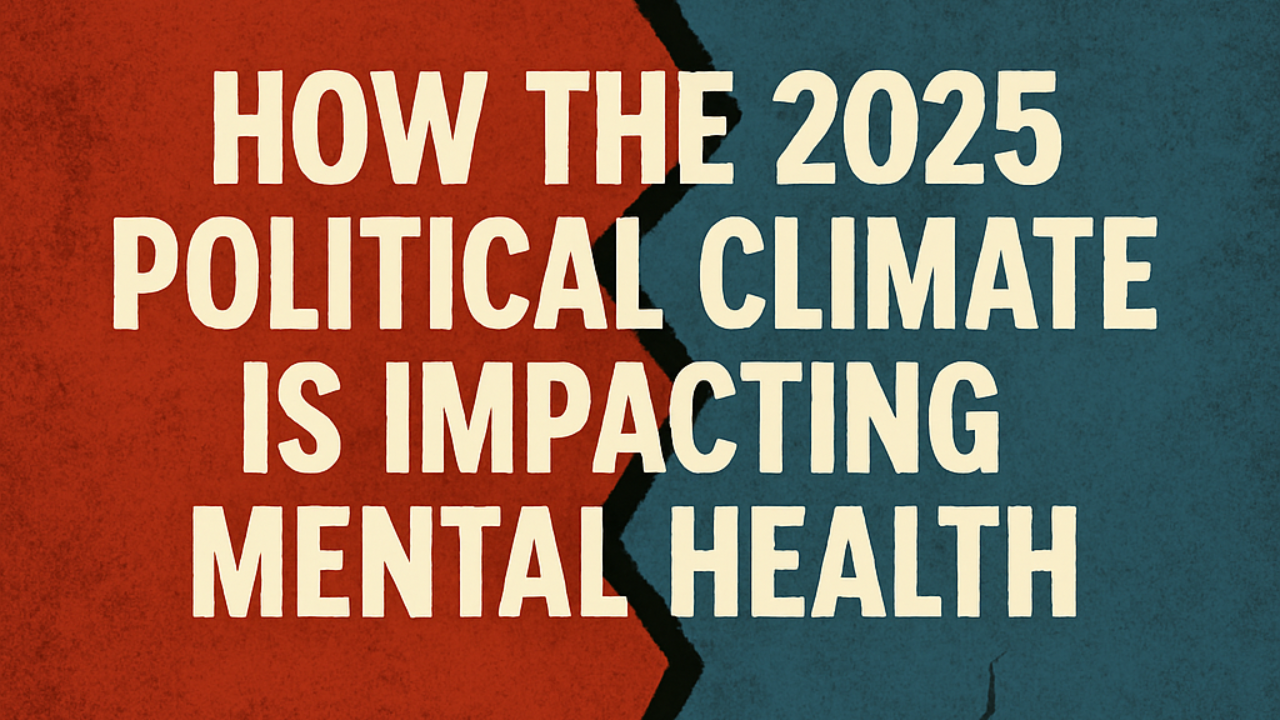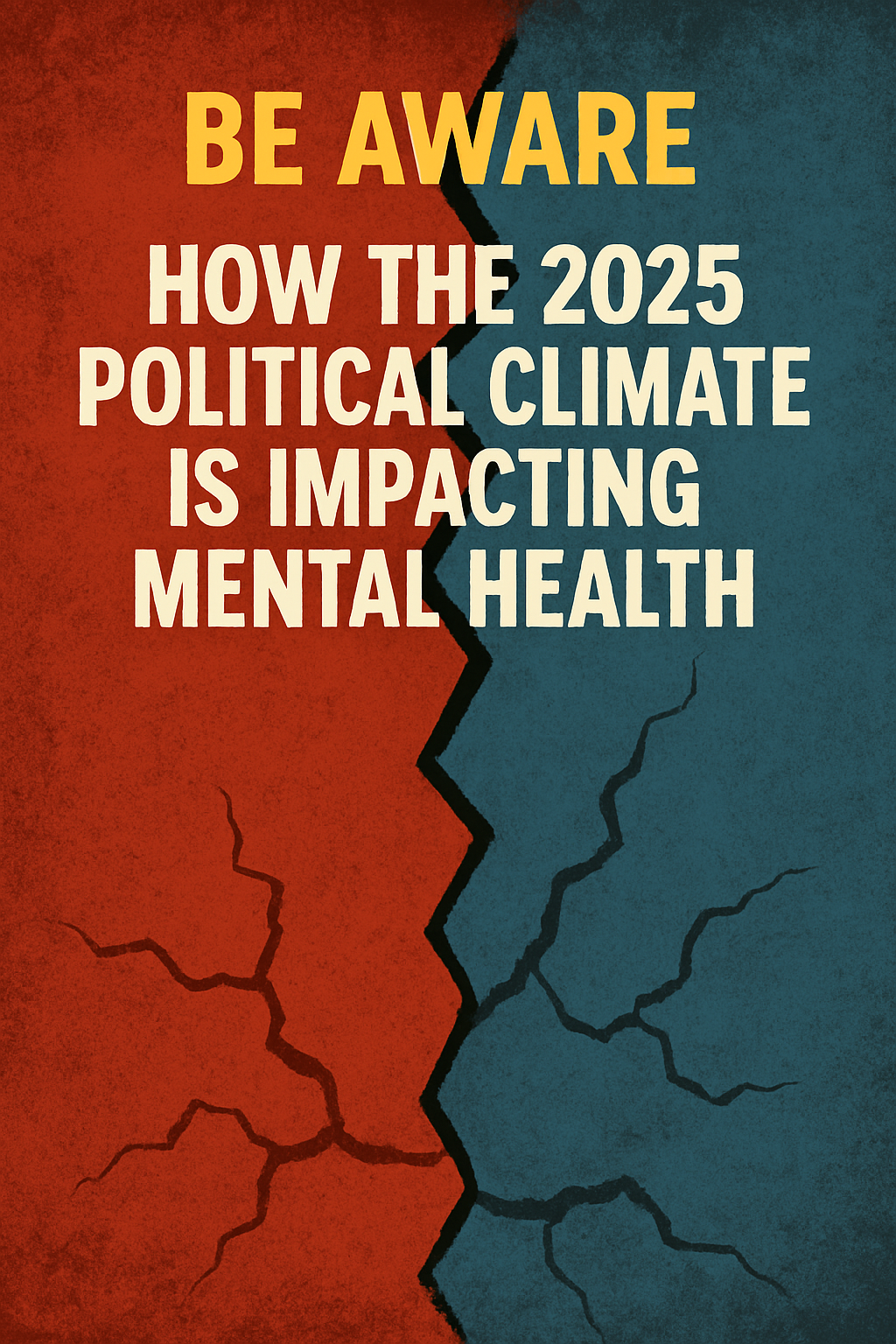Be Aware: How the 2025 Political Climate is Eroding Mental Health
Jul 22, 2025
In 2025, the U.S. political climate dominating headlines and affects our emotional well-being in ways many people don’t fully realize. While politics has always been controversial, what we’re seeing now is a growing correlation the political happenings and widespread mental health concerns. This isn’t about political affiliation or debate, it’s about the impact the political climate has on how people feel, think, and function.

Recent research shows nearly half of U.S. adults identify politics as a major source of stress. People are reporting increased anxiety, difficulty sleeping, irritability, and obsessive thoughts triggered by political news and discourse. Mental health professionals across the country, from Massachusetts to Tennessee, say more clients from marginalized communities are seeking therapy in relation to the current political atmosphere. LGBTQ+ individuals, for example, report heightened distress because of proposed or enacted policy changes.
Charlie Health’s 2025 survey found 75% of its clients reported a negative impact on their mental health because of the political climate. Over half said they avoid political conversations entirely. Another study from Emory University revealed political events significantly worsened symptoms of anxiety and depression, especially among women between the ages of 18 and 40. This shows how deeply the political environment shapes our internal emotional landscape.
Gen Zer’s are feeling especially overwhelmed. Even those who are financially stable report feelings of “doomerism,” hopelessness, and emotional disengagement from civic life. Many avoid the political process not out of apathy, but as a self-preservation strategy. Minorities including immigrants and Black communities, also express growing concerns tied to the climate of uncertainty and fear.
This prolonged political tension leads to people experiencing physical symptoms like insomnia, muscle tightness, elevated heart rates, and even suicidal ideation. The constant influx of information, often in the form of emotionally charged or polarizing headlines, causes a phenomenon called "perseverative cognition." This is when the brain becomes stuck in a loop of worry. It can raise cortisol levels and trigger long-term health problems.
I see these impacts ripple into work environments and personal relationships. Some people quit their jobs or avoid career moves because they can’t take any more stress. Others distance themselves from friends or family to avoid conflict. In trying to “protect your peace,” you end up cutting off the very connections could help you cope.
What can you do? Set clear boundaries with media consumption. Taking scheduled breaks from news and social media. Practice emotional awareness when political content is beginning to affect you negatively. Build safe, non-political spaces where you can find joy, hobbies, faith, or relationships reminding you things aren’t all bad. Finally, if stress begins to interfere with sleep, mood, or daily functioning, seek professional support.
Truthfully, this moment in history is hard on all of us. But myself and the team at Meadows Counseling Group are here to help you.
Join Our Email List
Get regular updates via email to help you feel more supported and empowered. You'll also receive a free copy of our booklet Self-Care: Being Yourself is One of the Most Powerful Elements of Good Health.


